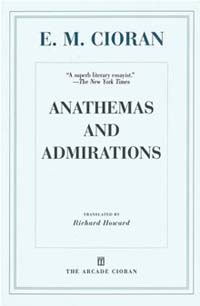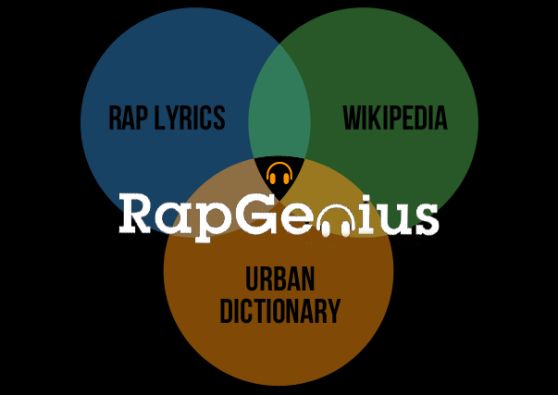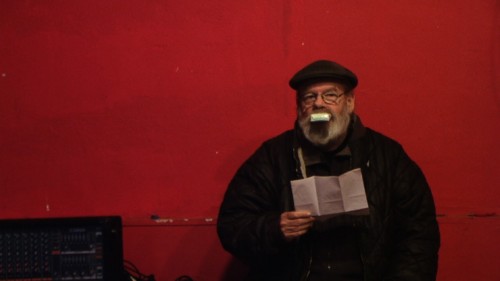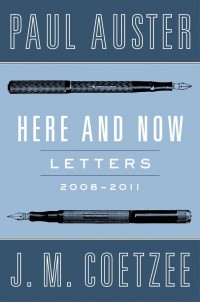“In between surviving multiple point-blank-range assassination attempts and a failed kidnapping in which he emerged alive from the burning wreckage of a battleship his own air force had just bombed, Pibulsongkram decided that Thailand needed noodles that would advance the country’s industry and economy.” — Pitchaya Sudbanthad’s brief history of pad thai (and accompanying recipe) in The Morning News is the best writing criticism/advice I’ve read in months.
55 Points: Shoplifting from American Apparel
1. This is a review of the recent film adaptation, not the book, although I’ll also say a few things about the book.
2. I saw the film on 14 March at the Logan Theatre in Logan Square, Chicago. It was a special event. About 70 people were in attendance.
3. The director, Pirooz Kalayeh, was there, and I spoke with him before and after the screening. Brad Warner, who plays Tao Lin (or “‘Movie’ Tao Lin”), was also in attendance.
4. Pirooz gave me a poster and a button and a DVD copy of the film. Thank you, Pirooz!
5. I’ve read Shoplifting maybe half a dozen times. I’ve also taught it twice. It’s my favorite of Tao’s books and I consider it something of a masterpiece.
6. Some people persist in thinking Tao isn’t a stylist, but I think he’s a brilliant stylist. Although maybe people are nowadays more convinced of this? I don’t know.
7. As Tao himself has pointed out (see here for instance), all of his books are written in different styles, something that I think obvious when one really looks at them.
8. I suspect some people really aren’t looking at them.
April 15th, 2013 / 8:07 am
Elizabeth Ellen, Mary Miller, Amy Butcher, and Chloe Caldwell Live at The Drake Hotel @ 12:30am ET
The reading is over. You missed it. :( #YOLO
AN ADMIRATION OF F. SCOTT FITZGERALD BY CIORAN
 Anathemas and Admirations
Anathemas and Admirations
by E. M. Cioran
Arcade Publishing, Nov 2012
272 pages / $14.95 Buy from Amazon
E.M. Cioran’s work indicates the caustic philosophical consequences of sleepless rumination upon insignificance and failure. It is thick with anxiety, but retains buoyancy, the sick humour of sneering into the abyss. For a generation allied by smug cynicism and chic nihilism, to encounter a space of understanding free of the sour stench of complaint might be palliative! It could correct the posture, provide iron to the will, destroy some friendships, and it might well be a taste of joy, a flicker of warmth… at the very least, it might mortify those prone to complaint…
Cioran was a Romanian born philosopher mystic who honed his craft in French, known for sharp edged aphorisms, fragments, recalling Nietzsche’s Daybreak. His was the bleak philosophy of insomnia, horrific laboring through late hours, candid lamentations of his very birth, his eyes drooping down his skull, a cigarette sizzling against an open sore. In Beyond Good and Evil, Nietzsche states “the thought of suicide is a strong consolation; one can get through many a bad night with it.” Cioran’s entire oeuvre can be seen as exploring this sentiment.
In 2012, a number of his books were published in fine editions. Anathemas and Admirations collects two of his books, Exercise d’admiration and Aveux et anathèmes. The resulting combination allies a series of literary essays – the admirations of a wide range of writers including Borges, Beckett, Fitzgerald – alongside clusters of confessional aphorisms:
“To have nothing more in common with men than the fact of being a man!”
“One can imagine everything, predict everything, save for how long one can sink.”
Cioran’s admirations offer intimate curmudgeonly affection on other writers, and are exemplary accounts of his method and approach. For instance, in Some Meetings, Cioran offers moments of intimacy with Beckett which reveal as much about Beckett’s saintly detachment as Cioran’s brooding disgust: “he disparages no one, unaware of the hygienic function of malevolence.” For reference points on other literary admirations, Henry Miller’s love letter to himself in the guise of a study of Rimbaud and Nick Land’s deranged engagement with Bataille both come to mind in the sense that they eschew the deft theoretical engagement of masters like Blanchot for a biographical confession of obsession and ruin.
April 12th, 2013 / 12:00 pm
Rap Genius: A First Look
 Someone grabbed me the other day. He wanted to talk about Rap Genius/Poetry Brain. He wanted me to talk about Rap Genius/Poetry Brain. I am good at talking—so I figure, why not? I mean this guy who asked me, he knew Barry Hannah, and I started right off the jump writing about Barry Hannah, and Hannah’s hospital visitation from Christ—which is just gorgeous and I would like to experience someday before my brain pops:
Someone grabbed me the other day. He wanted to talk about Rap Genius/Poetry Brain. He wanted me to talk about Rap Genius/Poetry Brain. I am good at talking—so I figure, why not? I mean this guy who asked me, he knew Barry Hannah, and I started right off the jump writing about Barry Hannah, and Hannah’s hospital visitation from Christ—which is just gorgeous and I would like to experience someday before my brain pops:
http://www.believermag.com/issues/201010/?read=interview_hannah_tower.
But then I had to cut the stuff about Hannah.
If this article were up at Rap Genius I could make the words “Hannah’s hospital visitation from Christ” into a link and when you clicked on it, then it would open directly to the part of the interview in The Believer where Hannah talks about Christ appearing in Hannah’s room at the old hospital.
Since it’s not, you have to go to the link and then scroll through the whole interview between Deep Water Hole Tower and Barry Hannah to find that moment of CHRIST appearing in Hannah’s hospital room, and the mountains behind him.
 I don’t know much about Rap. I used to smoke Oregon marijuana and drive around as a skinny pale shit listening to my brother’s tape of “Too Short” in my brother’s old red Honda stick shift, driving through the hills of Portland, already making up crazy voices in my head to tell stories with, but not telling any of them, just listening to them making me crazy in my head. So stoned, and driving, and everything like a song. The whole world singing. Which was probably the best. The not telling them and just having them. I definitely didn’t believe Too Short and guessed he was just playing with voices in his head too. I didn’t think of any of it as factual, or having any larger implications, or that there was anything real to find out about. Which was my fault. I was dumb about rap. I was just another freaky weird kid driving around in a brother’s car, cologne in the console, getting drunk and stoned and looking at the sky. I don’t know why, but I want to put this link here: http://www.youtube.com/watch?v=8Uee_mcxvrw. If this were Rap Genius I could put this in as a link in the word freaky up above. You’d just click on freaky and the video would open in a little window and you would still be looking at this thing I’m writing and you’re reading. I was dumb about life. I thought it was always going to sing and that I wouldn’t have to find out about life in order to use my voices. READ MORE >
I don’t know much about Rap. I used to smoke Oregon marijuana and drive around as a skinny pale shit listening to my brother’s tape of “Too Short” in my brother’s old red Honda stick shift, driving through the hills of Portland, already making up crazy voices in my head to tell stories with, but not telling any of them, just listening to them making me crazy in my head. So stoned, and driving, and everything like a song. The whole world singing. Which was probably the best. The not telling them and just having them. I definitely didn’t believe Too Short and guessed he was just playing with voices in his head too. I didn’t think of any of it as factual, or having any larger implications, or that there was anything real to find out about. Which was my fault. I was dumb about rap. I was just another freaky weird kid driving around in a brother’s car, cologne in the console, getting drunk and stoned and looking at the sky. I don’t know why, but I want to put this link here: http://www.youtube.com/watch?v=8Uee_mcxvrw. If this were Rap Genius I could put this in as a link in the word freaky up above. You’d just click on freaky and the video would open in a little window and you would still be looking at this thing I’m writing and you’re reading. I was dumb about life. I thought it was always going to sing and that I wouldn’t have to find out about life in order to use my voices. READ MORE >
Blaster Al Ackerman (19xx – 2013)

Blaster Al Ackerman passed away in mid-March. (Link there is to a very nice remembrance by our own Adam Robinson.) Some folks who knew him wrote some things about him. Michael Kimball and Rupert Wondolowski collected them for HTML Giant. Here—accompanied by some photos and some of Blaster’s mail art—they are.
————————————————————————-
I met Blaster in the flesh only once. He was ludditical, sweet, grumpy, and eventually he put a bar of soap in his mouth. Soon after he moved to Austin, I picked up some shifts he had vacated at Normal’s Books & Records, and there his absence was a constant presence — notes from Blaster, paintings by Blaster, & stories of Blaster: goofing on telemarketers, giving fucked up directions to the Book Thing, &c. It got so I was seeing his influence all over Baltimore — particularly among that stripe of Baltimore artist that believes in the prank as a spiritual path and one’s life as a work of art.
– Bob O’Brien
————————————————————————-
Dr Ackerman alias Blaster, who prepared himself at the age of 6 to outclass both Dante and Mark Twain, is one of the most enigmatic writers of the current literature of outcasts and damned poets. He is the author of such masterpieces as “The Fifteen Bath Towels” and “2976 Vienna Sausages,” not to mention “The Ecstasy of Macaroni.” In March/86, after being arrested for the millionth time for dancing naked, holding a flaming steam iron in his right hand and a half empty bottle of Whyte & Mackay scotch whiskey in the left, in front of a shopping center in San Antonio, Texas, he pointed out very clearly in a confessional letter (Confessions of an American Ling Master) he has sent from jail to the major of San Antonio that poetry is a social issue and not just a question of publishing and selling books.
-Istvan Kantor Monty Cantsin? Amen! Esmeralda Eldorado Sawang READ MORE >
25 Points: Here and Now: Letters (2008-2011)
 Here and Now: Letters 2008-2011
Here and Now: Letters 2008-2011
by Paul Auster and J.M. Coetzee
Viking, 2013
248 pages / $27.95 buy from Amazon
1. As the title suggests, this book documents the correspondence between Asturias Prize winner Paul Auster and Nobel Prize winner J.M. Coetzee from 2008-2011.
2. According to my calculations there are 79 letters, though some letters include emails explaining a fax machine is broken or low on ink.
3. It is not revealed if either titan of world literature had to dial a 9 before faxing.
4. There is no editor’s note, introduction, epilogue or index. Peculiar for a book of letters. There are footnotes but only sometimes: a biography of Kafka is footnoted while Pierre Clastres’ Chronicle of the Guayaki Indians is not.
5. 11 letters were exchanged in 2008, 30 in 2009, 25 in 2010 and 13 in 2011. The 2008 and 2011 exchanges are high-spirited, covering topics ranging from why men enjoy watching sports to the film director William Wyler.
6. On the 24th letter they perfect their flow: “Thank you for yesterday’s fax. I feel that we have finally hit upon a workable system. A slow letter across the seas from America to Australia and then a quick, electronic transmission of paper from a room in a house in Adelaide to a room in a house in Brooklyn.”
7. I would’ve liked to have been a fly on the whiteboard when Viking Press gave the green light to the title. I could’ve squashed myself.
8. Coetzee is why I wanted to read this book. I thought I’d never read a book by Auster. Halfway through I realized I have read several of his books, years ago, but I still don’t remember reading them. Is not reading a book and not remembering reading a book the same thing? Scrolling for Auster I found James Wood’s mean-spirited article from 2009. Whenever James Wood decides someone is a bad writer they deserve a closer look.
9. “The emboldened critic,” Coetzee says in letter 42, “becomes like the child lobbing pebbles at the gorilla in the zoo, knowing he is protected by the bars.” Auster on James Wood: “I mustn’t complain, least of all about a man whose name suggests that one day he will be eaten by termites.”
10. This book made me miss my grandfathers. READ MORE >
April 11th, 2013 / 12:00 pm
Outfit and Poem for Springtime
I am invariably unimpressed by spring. Warm weather and sun aren’t traits that I find becoming. But still… spring does mean that you can wear clothes that you wouldn’t wear otherwise. So here is an outfit that I recently assembled:

Vintage Olympic t-shirt from a Goodwill in Missouri, polka dot tights by American Apparel, sunnies from a Chinese person on East Broadway, and UO boots
Also, here is a spring poem that was first published on Lambada. It’s authoress is the marvelous Monica McClure. If I was a boy who liked girls I would probably like Monica McClure, and we would most likely live in a really special place, and only those cognizant of certain things would be able to keep company with us:
Problems of Spring
It’s not my fault; the moon is shining through me.
Naturally, the most romantic steps forward
to say he swallowed a daffodil for every lover he’s had.
I can see where they dimple his stomach, I can see
the hardiness of arms, the artless shoveling
he’ll do from night to joyful morning.
To release me will dry his mouth to lemon,
I know, but I need the gaze of a man more than rain.
Another Bacchanalia in April, and I have only
half a body to dance, half to steady a canyon.
Nobody knows how to stay or leave. It’s not my fault,
although the way white blossoms look like hail
when they’re thrashed in a storm—it’s a pity.


